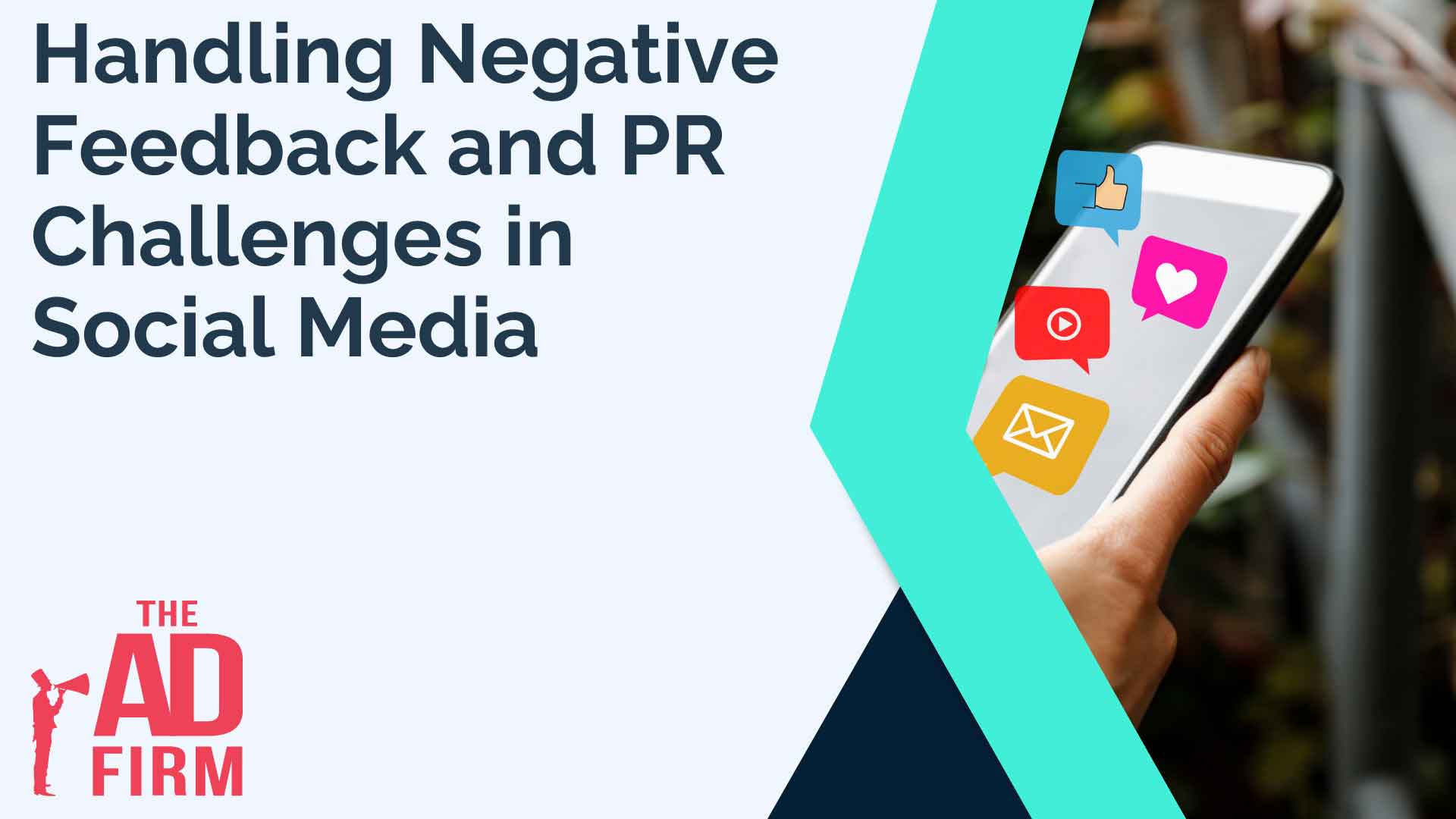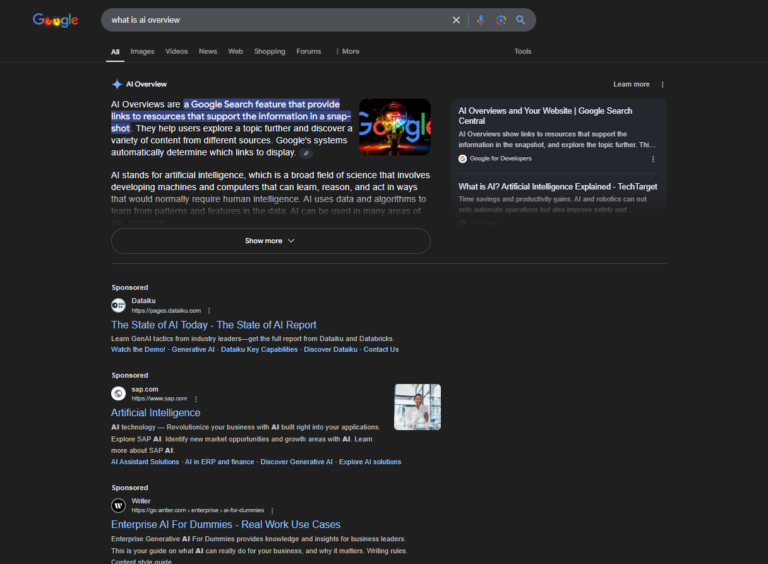In the world of social media, feedback—both positive and negative—is inevitable. How a company responds to this feedback can significantly influence its public image and customer relationships. Effective handling of negative feedback and PR challenges is not just about damage control; it’s about turning challenges into opportunities to demonstrate the company’s commitment to its customers and improve its services. This comprehensive guide will provide detailed strategies for managing social media feedback effectively, ensuring your brand is equipped to handle criticisms constructively and maintain a positive reputation.
But first, let’s discuss what’s the impact of negative feedback and PR challenges on a company’s reputation.
The Impact of Negative Feedback
Negative feedback on social media can significantly impact your business in various ways. While it presents an opportunity to demonstrate your brand’s commitment to customer service and responsiveness, the potential negative effects cannot be ignored. Understanding these impacts is crucial for effectively managing your social media presence.
- Damage to Brand Reputation: Negative comments or reviews can harm your brand’s reputation quickly if they are not addressed promptly and effectively. This damage can deter potential customers and erode trust among your current ones.
- Loss of Customer Trust: When negative feedback goes unaddressed, it can lead customers to lose trust in your brand. Trust is critical in building and maintaining customer relationships, and once lost, it can be difficult to regain.
- Decrease in Sales: A direct consequence of a damaged reputation and loss of trust can be a decrease in sales. Potential and existing customers might choose competitors if they perceive that your brand doesn’t handle issues effectively.
- Reduced Customer Loyalty: Negative feedback can lead to a decline in customer loyalty. Loyal customers are likely to turn to competitors if they feel their concerns are not addressed satisfactorily.
- Impact on Employee Morale: Persistent negative feedback can also affect your team’s morale. Employees who see unresolved complaints or widespread criticism may feel demotivated, which can impact their performance and further affect customer service quality.
Conversely, effectively managing negative feedback by addressing concerns promptly and transparently can help turn dissatisfied customers into loyal advocates. This approach not only mitigates the negative impacts but also enhances your brand’s reputation for accountability and customer dedication. Understanding and preparing for both the negative and positive potential of customer feedback is a key component of a successful social media strategy. An SEO consultant can help you with managing your social media presence and handle negative feedback effectively.
Immediate Response Strategies
Responding promptly and appropriately to negative feedback on social media is crucial for maintaining control of your brand’s narrative and mitigating any potential damage to your reputation. Here we’ll explore specific strategies to ensure your responses are effective and help preserve your brand’s image.
Acknowledge Quickly
Immediate acknowledgment of complaints is key. Showing that your brand values customer feedback and is responsive can greatly impact how the public perceives your handling of the situation. Here are a few strategies for quick acknowledgment:
- Respond within the hour: Timeliness is critical. Try to respond to complaints within an hour of their posting. This rapid response prevents customers from feeling ignored and helps control the narrative before it can escalate on social media.
- Personalize your responses: Avoid generic replies. Tailor your responses to address the specific concerns raised by the customer, showing that you have paid attention to their issue and are not just sending automated replies.
- Express willingness to resolve the issue: Make it clear that you are eager to solve the problem, which reassures the customer that you are on their side and working towards a resolution.
Stay Professional
Maintaining professionalism across all interactions is essential, regardless of the feedback’s nature. Here are effective ways to ensure professionalism:
- Use a calm and respectful tone: No matter how critical or emotional the feedback is, always keep your responses polite and respectful. This approach helps de-escalate potential conflicts and shows other customers that you handle criticism gracefully.
- Avoid jargon and technical terms: Speak clearly and simply to ensure your message is understandable to everyone. Avoiding corporate speech and jargon makes your communication more relatable and sincere.
- Take the conversation offline if necessary: If an issue is complex or sensitive, suggest taking the conversation to a private channel like email or direct messaging. This not only provides a space for more detailed discussion but also prevents the situation from attracting more public attention.
Communication Best Practices
Effective communication is essential when handling negative feedback on social media. It’s important to address issues promptly while ensuring the tone of your messaging builds a positive connection with the broader audience. Demonstrating empathy and maintaining honesty are key components of successful communication strategies.
- Empathize with the customer: Showing understanding is crucial. Use phrases like, “We see how this has been frustrating for you,” or “Thank you for bringing this to our attention; we truly value your feedback.” Such expressions show that you care about the customer’s experience and are committed to making things right.
- Maintain transparency: Be clear about what steps are being taken to resolve the issue. For example, “We are currently looking into this issue to find a solution as quickly as possible,” or “We’re committed to resolving this, and we’ll keep you updated every step of the way.” This helps to build trust and reassures the customer that their concerns are being addressed seriously and promptly.
Engaging with the Audience to Mitigate Negative Impact
Engaging consistently with your audience on social media is crucial for mitigating the impact of negative feedback and enhancing your brand’s relationship with its followers. Regular, personalized interactions show that your brand values and respects customer feedback, and is committed to addressing individual concerns. This approach not only improves customer loyalty but also paves the way for more positive interactions in the future.
To foster a supportive community around your brand, it’s beneficial to encourage positive interactions across your social media platforms. Here are some effective strategies:
- Highlight Customer Stories: Share testimonials and positive experiences of customers to emphasize the quality of your service or product.
- Conduct Interactive Polls: Engage your audience with polls that invite their opinions on relevant topics, which can increase engagement and give valuable insights into customer preferences.
- Host Q&A Sessions: Regular Q&A sessions can address common concerns and personalize the interaction between your brand and its customers, fostering a stronger community feeling.
Getting digital marketing services from a reputable full-service digital marketing agency can help you develop and execute a comprehensive social media strategy that effectively handles negative feedback while nurturing positive relationships with your audience.
Developing a Crisis Communication Plan
Creating a robust crisis communication plan is crucial for any business active on social media. This plan equips you to handle various types of negative feedback and PR challenges effectively, ensuring that your responses are consistent and well-coordinated.
Step 1: Assess Your Risks
Before you can create an effective plan, you need to understand the specific risks your brand might face on social media. Consider the most likely sources of negative feedback or crises and the potential impact of each. This might include product complaints, service failures, or wider PR issues that could attract public attention.
Step 2: Define Your Communication Strategy
Your strategy should outline how you will communicate during a crisis, including who will speak for the company, the platforms you will use to communicate, and the key messages you aim to convey. Decide in advance what types of content will be handled publicly and what should be moved to private communications to avoid escalating the issue.
Step 3: Establish Monitoring and Response Protocols
Set up a system for monitoring social media channels for mentions of your brand, especially negative comments or emerging crises. Determine who in your team is responsible for monitoring these channels, how they will escalate issues within the company, and how quickly they should respond to emerging problems.
Step 4: Train Your Team
Ensure that everyone involved in your social media and communication strategies understands their role in a crisis. Regular training sessions can help prepare your team to handle potential issues effectively. Include scenario-based training to cover various types of crises your company might face.
Review and Revise Regularly
A crisis communication plan is not a set-and-forget strategy. Regularly review and update the plan based on new business developments, previous crisis outcomes, and evolving best practices in crisis management. This ensures that your plan remains effective and relevant.
Long-Term Brand Reputation Management
Managing your brand’s reputation on social media is an ongoing process that requires consistent attention and strategic adjustments. It’s vital to continually analyze both positive and negative feedback to understand your audience better and improve your services or products. This ongoing analysis helps pinpoint areas for improvement, leading to enhanced customer satisfaction and loyalty. Regular updates to your strategies based on customer feedback can significantly boost your brand’s public perception and success.
Efforts to maintain and enhance your brand’s reputation should include:
- Regular Feedback Analysis: Systematically review customer feedback to identify trends and recurring issues that need addressing.
- Strategy Adjustments: Update your marketing and service strategies based on the insights gained from feedback to better meet customer expectations.
- Team Empowerment: Provide comprehensive training to your social media team on the latest communication strategies and crisis management techniques. Empower them with the authority to make real-time decisions, which can lead to faster and more effective problem resolution.
Final Thoughts
Handling negative feedback and PR challenges on social media is an integral part of managing a brand in the digital age. By employing strategic responses, communicating effectively, and engaging positively with the audience, your brand can not only mitigate the effects of negative feedback but also enhance its reputation and deepen customer trust.
Remember, each piece of feedback is an opportunity to improve and strengthen your brand’s relationship with its customers. Embrace these challenges as chances to grow and excel in a competitive market. Get help from a top SEO company like The Ad Firm to manage your digital marketing efforts and develop effective strategies if you’re struggling to handle negative feedback on social media. With the right approach, your brand’s online presence can become a powerful tool for building a loyal and engaged community of customers.









